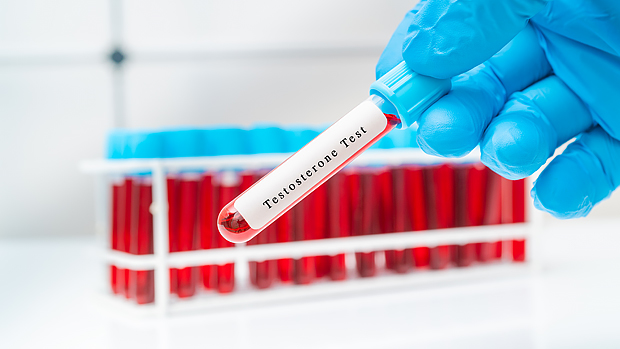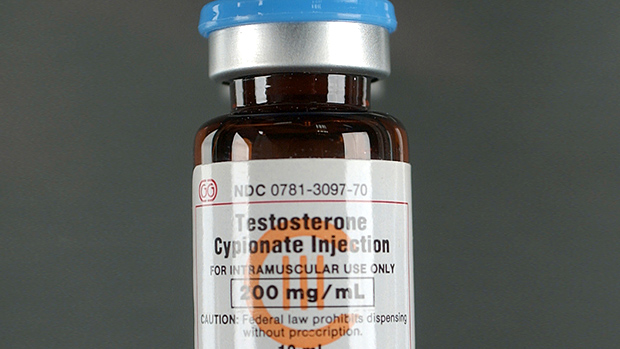by TC Luoma
Testosterone Replacement Therapy: The Final Verdict
One month the medical establishment says TRT is safe. The next month they say it's going to kill you. Which is it? Finally, some answers.
Is TRT Safe? The Final Verdict
In 2016, the FDA hurriedly issued some new warnings about the serious adverse health outcomes associated with testosterone replacement therapy (TRT). Their statement, a dictum to drug companies to shore up the labeling on testosterone packaging, contained the following warnings:
“Reported serious adverse outcomes include heart attack, heart failure, stroke, depression, hostility, aggression, liver toxicity, and male infertility.”
Oh my, fire and brimstone coming down from the skies! Rivers and seas boiling! The dead rising from the grave! Human sacrifice, dogs and cats living together!
Sorry for being so glib about this whole issue, but I’ve spent most of my professional career studying testosterone and its effects and Boss, I gets tired having to repeatedly whack the head of this particular mole.
But the FDA didn’t stop with a warning. They also restricted testosterone approval to cases of hypogonadism caused by documented pituitary or testicular disease, specifically excluding age-related drops in the hormone, i.e., testosterone replacement therapy.
Many doctors and patients bought into the announcement. They stopped prescribing/using TRT. The vitality of patients lagged and their muscle mass waned. Libidos flagged and so did erections. Wives and sexual partners in general bought lots more batteries for their personal devices while casting lascivious glances at phallic squashes at the grocery store.
Fortunately for all those people, a solid meta-study (a study that combines results from previous separate but related studies) was just published and it implies responsible TRT is not only safe but might also exhibit “reverse causality,” i.e., TRT might actually lower the risks of cardiovascular events instead of raising them.
So, What Made This Study Different?

The aim of Jemma Hudson and her 37-member team of researchers was to “provide the most extensive individual participant dataset (IPD) of testosterone trials available, to analyze subtypes of all cardiovascular events observed during treatment, and to investigate the effect of incorporating data from trials that did not provide IPD.”
They cast their database nets into the turbulent information sea and pulled in 9,871 citations. After excluding duplicates and those that were deemed irrelevant, they kept 225 and tossed the rest back in. Of these, only 35 (comprising 5,601 participants) of them were deemed suitable for inclusion in their study.
After painstakingly teasing the data apart, they found no evidence that testosterone increased short-term to medium-term cardiovascular risks in men with hypogonadism.
The Specifics

Of the 35 studies that comprised their catch, 17 of them provided those individual data sets I mentioned in the previous chunk of text. (These types of studies are particularly valuable because they incorporate placebo groups.) These 17 studies included 1,750 men who’d been using TRT and 1681 who were in the placebo group.
The mean age was 65 and the mean BMI was 30 (definitely portly, to be kind). Many had diabetes, angina, or had experienced previous myocardial infarction. The mean duration of testosterone replacement was 9.5 months (the range was 12 weeks to 3 years).
Here’s a rundown of some of their findings:
- 82% of the studies addressed mortality. The testosterone group reported fewer deaths from any cause than the placebo group, but the difference didn’t reach statistical significance.
- 76% of the studies provided data on cardiovascular or cerebrovascular (loss of blood flow to the brain) events. The testosterone group reported slightly more (120) deaths than the placebo group (110), but again, it didn’t reach statistical significance.
That being said, post hoc (after the fact) sensitivity analyses (an examination of how changes in methods, models, or values of unmeasured variables affected results) implied that the risk of cardiovascular or cardiocerebral events went down after TRT was brought into what’s considered a high-normal range. - Both serum total cholesterol and triglycerides were significantly lower in the testosterone groups, although, as is usually the case, TRT appeared to modestly lower levels of HDL more than the placebo group.
- There appeared to be no difference in the blood pressure between the two groups. The same was true for glucose sensitivity or A1C (a measure of average blood sugar over the previous three months).
- Hemoglobin and hematocrit were higher in the TRT groups and the number was statistically relevant. This is to be expected, though, as testosterone therapy suppresses hepcidin, a regulator of iron levels, and iron levels directly influence red blood cell production. However, only 5 cases of deep-vein thrombosis were reported in the testosterone groups, compared to 7 in the placebo group.
- Lastly, there was no difference in the groups as far as incidence of prostate cancer.
What The Team Had To Say About All That
Unlike most studies, Hudson’s group was pretty confident in its assertions. Most research papers hem and haw until the cows either come home of their own volition or were brought there by a random sequence of events, perhaps precipitated by some unknown or hitherto unrealized reasons. More research is needed on these cows and their homeward tendencies.
You get the idea. Anyhow, her group punctuated their findings by writing the following:
"The most frequently recorded cardiovascular event categories in the identified trials were arrhythmia, coronary heart disease, heart failure, cerebrovascular events, and myocardial infarction. We have also identified and reported frequencies of stable angina, peripheral vascular disease, aortic aneurysm, and aortic dissection, which have not been reported by any previous meta-analysis.
“None of the cardiovascular event subtypes were significantly more common in patients assigned to testosterone treatment than in patients assigned to placebo.”
And later in the paper, the group doubles down, even getting a little cocky:
“We have conducted the most comprehensive study to date investigating the safety of testosterone treatment of hypogonadism. Testosterone treatment did not increase cardiovascular event risk in the short term to medium term. So there.”
Okay, I added the “so there,” but I could sense that’s what they were itching to add.
Roll Up This Paper And Thump Your Doctor On The Head With It

Here’s where I put on my grown-up, Robin Hood-style hat with a feather attached and do a little of my own hemming and hawing. While the data compiled by Hudson and her colleagues was comforting, I need to remind everyone that the mean duration of TRT was 9.5 months. It’s possible that being on testosterone for longer periods, say years, might have some different effects on cardiovascular health or overall health.
No one knows for sure. Additionally, the research they compiled used sane, standard dosages of TRT, not amounts that require a syringe barrel that’s as big as a turkey baster.
Still, this study is a good one to toss at your physician if they push their glasses up against their nose and start wagging their forefinger at you and begin droning on about how testosterone replacement therapy will turn you into a dead man walking.
Reference
Reference
- Hudson j et al. **Adverse cardiovascular events and mortality in men during testosterone treatment: an individual patient and aggregate data meta-analysis.**Lancet Healthy Longev. 2022 Jun;3(6):e381-e393. PubMed.



